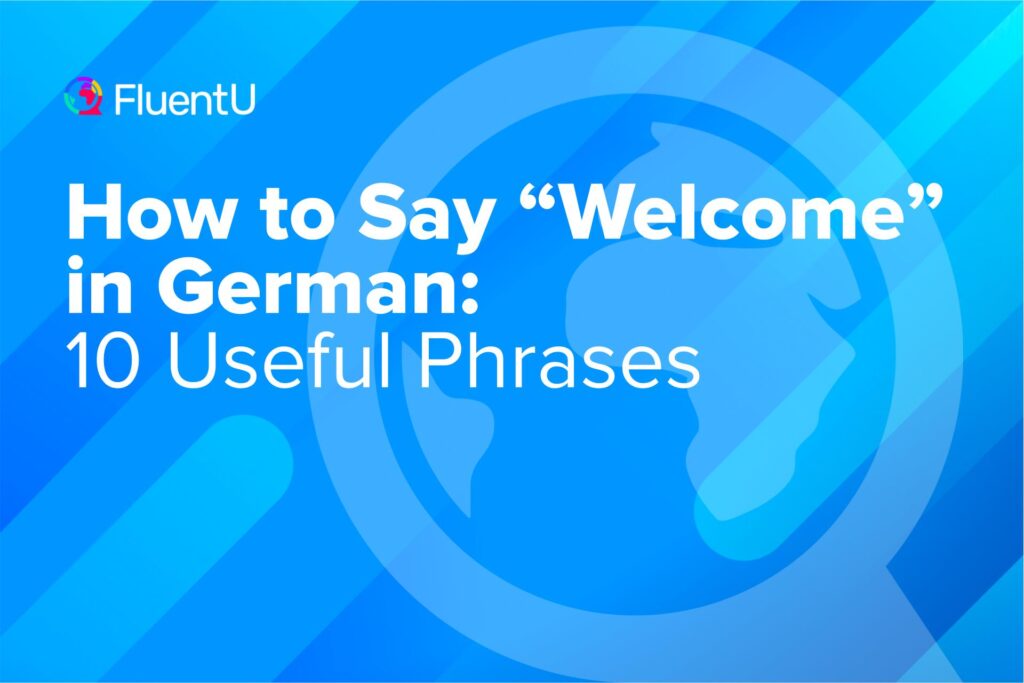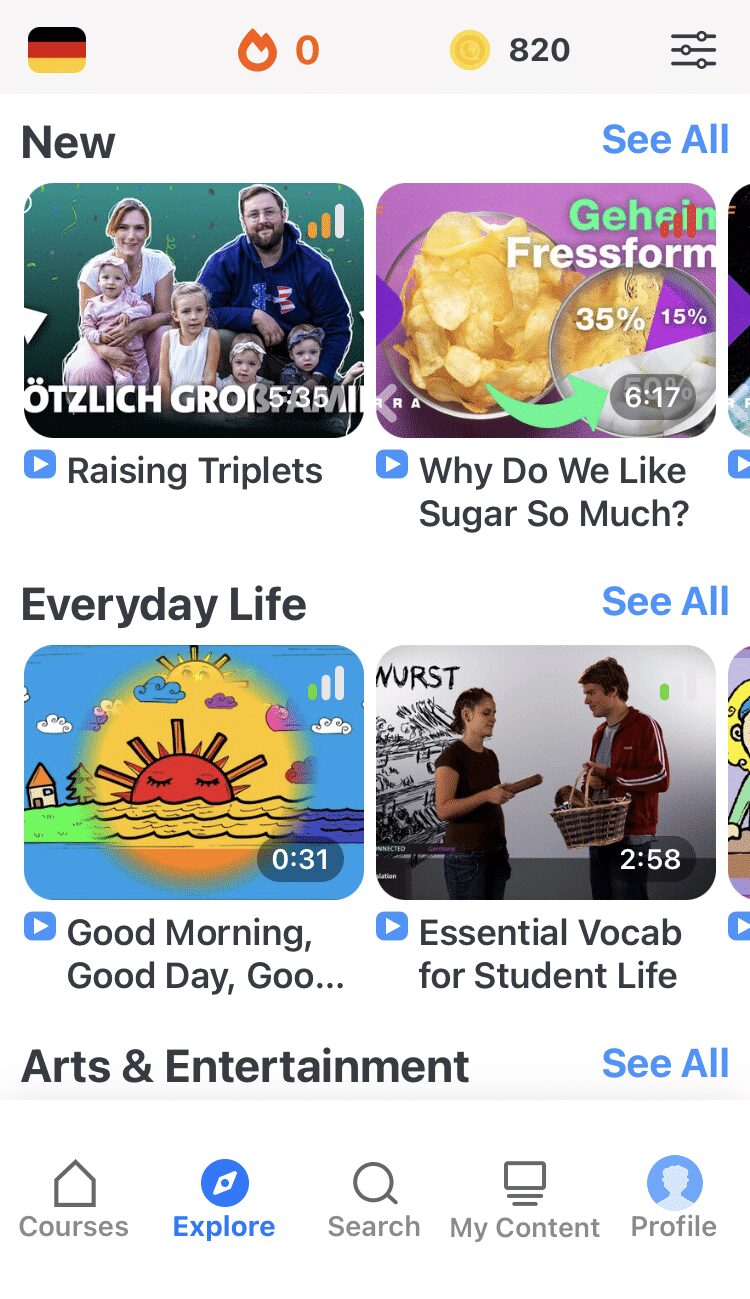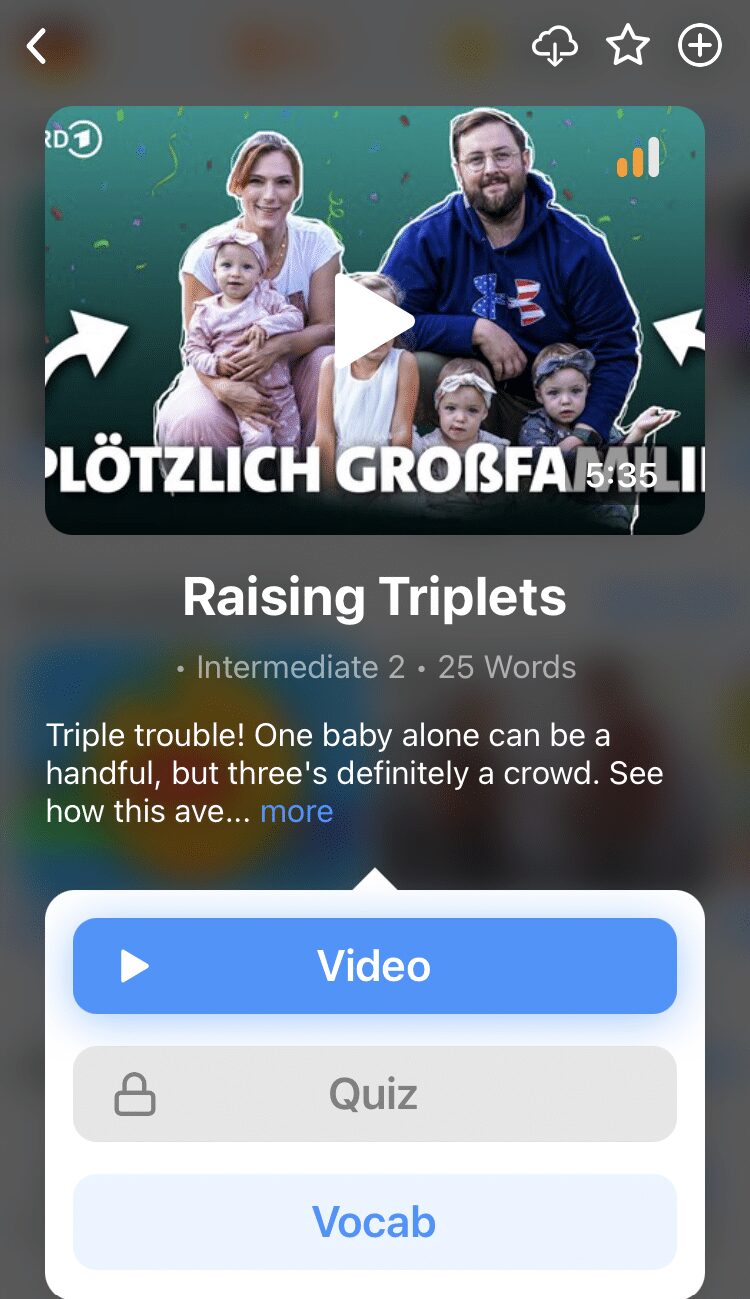Contents
- 1. Herzlich Willkommen bei uns / mir — Warm welcome from us/me
- 2. Wie geht’s / Wie geht es Ihnen? — How are you?
- 3. Guten Appetit! — Enjoy your meal!
- 4. Prost! / Zum Wohl! — Cheers!/To your health!
- 5. Fühlen Sie / fühl dich wie zu Hause! — Feel at home here!
- 6. Danke vielmals — Thank you very much
- 7. Entschuldigung — Excuse me
- 8. Bitte — You’re welcome
- 9. Einen schönen Abend noch! / Schönes Wochenende! — Have a good evening/weekend!
- 10. Mach’s gut! — Take care!
- The Importance of Gastfreundschaft (Hospitality)
- Etiquette If You’re the One Inviting
- Etiquette If You’re the One Being Invited
- And One More Thing...
How to Say “Welcome” in German: 10 Useful Phrases

Whether you’re a host or a guest, it’s important to know the essential German welcome phrases for greeting friends, eating and drinking or smoothing over social wrinkles.
In this post, I’ll show you 10 key expressions for saying “welcome” in German, plus tips on how to use them appropriately in context.
Download: This blog post is available as a convenient and portable PDF that you can take anywhere. Click here to get a copy. (Download)
1. Herzlich Willkommen bei uns / mir — Warm welcome from us/me
Let’s practice: So you’ve researched all the German etiquette. You’ve laid out the table, got snacks and you’ve even got the Hausschuhe for your guests so that their toes won’t get cold. You’re the absolute boss of hospitality.
But as soon as they step over the threshold, what do you say to kick off the visit?
You say: Herzlich Willkommen bei uns/mir! Komm rein/Kommen Sie rein! (Warm welcome to you from us! Come in!)
Note: This phrase is used to welcome people to a place. It’s a different kind of welcome than you would use to say “you’re welcome.” In that case, you would use the term “bitte.”
2. Wie geht’s / Wie geht es Ihnen? — How are you?
Let’s practice: Your plan is coming together nicely! You’ve invited around two groups of friends, and you think that they’re going to bond together like glue! But there’s one or two that don’t seem to be fully into the conversation—how are you going to break the ice?
You say: Wie geht’s/geht es Ihnen? Was hast du/haben Sie gestern getan? (How are you? What did you do yesterday?)
3. Guten Appetit! — Enjoy your meal!
Let’s practice: You’re sitting at the table. The repast is stretched before you. Magnificent smells are wafting up and your mouth is starting to water.
You look to the left and to the right, but everybody is sitting still and expectant—shouldn’t your guests be digging in?
Nein! (No!) They’re waiting for the signal, and you, the host, are the one to give it!
You say: Guten Appetit/Ich wünsche alle einen guten Appetit! (Enjoy your food/I wish you all a good meal!)
4. Prost! / Zum Wohl! — Cheers!/To your health!
Let’s practice: You’re relaxed and you’ve been eyeing the wine that your host has put out. But nobody has touched their glass and you’re a little confused.
Suddenly, your host stands up, looks everyone in the eyes and calls “Prost.” There’s much clinking of glasses and drinking and you decide that you want to get in on this!
You say (while looking at the person you’re toasting): Prost/zum Wohl!
Note: Prost is a little more informal than zum Wohl. If you’re uncertain then follow the lead of your hosts or other guests.
5. Fühlen Sie / fühl dich wie zu Hause! — Feel at home here!
Let’s practice: You sigh heavily. There’s one guest who seems to be holding himself rather stiffly, as if he’s afraid he’s going to make a mess. This isn’t what you wanted at all!
If only there were a way to let him know that he’s welcome and could relax a little bit more. Perhaps you should sidle up to him quietly and say…
You say: Hallo! Bitte Fühlen Sie/fühl dich wie zu Hause! (Hi! Please feel at home here!)
6. Danke vielmals — Thank you very much
Let’s practice: You’ve had the most amazing time. You’ve laughed more than you thought you could, the food was eye-poppingly awesome and you’re pretty sure you’ve met some people that could be your new best friends. How could you possibly say thank you!?
You say: Danke vielmals für die Einladung! Ich hatte die schönste Zeit. (Thank you very much for the invitation! I had the loveliest time.)
7. Entschuldigung — Excuse me
Let’s practice: You’ve just walked into the pristine room of your hosts. They’ve taken your coats and everything is going swimmingly. But then… Nein! You somehow trip over your own feet and fall right into your host!
Is the evening ruined? Of course not! All you need to do is say the magic words and any awkwardness will be quickly smoothed over.
You say: Entschuldigung! Es tut mir sehr leid! (Excuse me! I’m so sorry!)
8. Bitte — You’re welcome
Let’s practice: You hand your guest a plate full of delicious food and they say danke! (thanks!). Your mind races—what are you supposed to say?
You say: Bitte! (You’re welcome!)
9. Einen schönen Abend noch! / Schönes Wochenende! — Have a good evening/weekend!
Let’s practice: Everything has gone as well as you could’ve hoped! You’re about to go down as the best host in history! Your guests have been fed, stories have been told and much merriment has been had by all. Now they’re waiting at the door and you just need to wrap it up… the cherry on top!
You say: Immer schön, euch/Sie zu sehen! Einen schönen Abend noch! (It’s always fun to see you! Have a great evening!)
10. Mach’s gut! — Take care!
Let’s practice: It’s been a cozy night with your friends. Nothing fancy, but you’ve clinked more than a few beers together. Prosts all around! You’ll be seeing all of them again soon, so you just want something informal to send them on their way.
All you need to say is…
You say: Mach’s gut! (Take care!)
The Importance of Gastfreundschaft (Hospitality)
The one thing that Germans are known for far and wide is their exceedingly organized society. Ordnung (order) is the principle on which their entire culture is built. There’s a time and a place for everything. And there are rules to go along with it.
Schulordnung (school rules). Arbeitsordnung (work rules). Öffentliche Ordnung (public order). Straßenverkehrsordnung (traffic rules). And the list goes on.
Although predictably there are also Hausordnung (house rules), home is one of the places where Germans can really kick back, relax and be their most laid-back selves. As such, typically only very close friends or family are invited into the home. If you’re invited, consider it an honor!
A popular way for people to bond socially is to share food together, whether it’s just an afternoon Kaffee und Kuchen (coffee and cake) or a full sitdown dinner. So follow these tips and you’ll be the smoothest cat in the Dorf (village).
You can learn more about German culture (and everyday expressions) on FluentU.
FluentU takes authentic videos—like music videos, movie trailers, news and inspiring talks—and turns them into personalized language learning lessons.
You can try FluentU for free for 2 weeks. Check out the website or download the iOS app or Android app.
P.S. Click here to take advantage of our current sale! (Expires at the end of this month.)
Etiquette If You’re the One Inviting
- Tell your guests when they should arrive. Although some cultures have a more laissez-faire approach to timing, don’t say earlier or later than you mean. If you say 3 p.m., your guests will turn up at 3 p.m. on the dot.
- Set out the dining table or have snacks if the food isn’t ready. Don’t let your guests go hungry! Make sure that they have something delicious to nibble on as soon as they walk in the door. In summer, fresh fruit and nuts can be an excellent choice, and in winter, cheese and crackers! Yum.
- Tell everyone when to start eating. Once everyone is seated and ready to eat, say Guten Appetit! (Enjoy your meal!) Your guests won’t touch their food until you do!
- Keep an eye on drink levels. As the host you’ll be expected to refill any drinks or crack open another bottle if the occasion calls for it.
Etiquette If You’re the One Being Invited
- Arrive on time! Germans are famed for the ability to set your watch to them. They just don’t do “fashionably late.” Demonstrating Pünktlichkeit (punctuality) will warm the cockles of their hearts.
- Take your shoes off at the door. Obey the Hausordnung! Germans like to keep things neat and tidy, and will often offer you a pair of Hausschuhe (slippers) so that your feet don’t get cold.
- Bring a small gift. Chocolates and wine are always acceptable and if you want to try your hand at some home baking, go for it! Flowers are also a good bet—but avoid roses (they’re for romance!) or carnations (funerals).
- Keep the conversation away from business. Keep it bright and cheerful! Your hosts have invited you over to have a good time, not a stuffy boardroom meeting.
- Clear your plate but save room for dessert. Once you’re finished, lie your knife and fork side-by-side pointing to the center, with the handles on the lower right rim. It’s considered impolite not to finish your food… but there’s nearly always a delicious dessert for after!
Armed with these German phrases and tips, you should be able to be the absolute belle of the ball, whether it be as the host or the guest!
Viel Gluck und viel Spaß dabei! (Good luck and have fun!)
Download: This blog post is available as a convenient and portable PDF that you can take anywhere. Click here to get a copy. (Download)
And One More Thing...
Want to know the key to learning German effectively?
It's using the right content and tools, like FluentU has to offer! Browse hundreds of videos, take endless quizzes and master the German language faster than you've ever imagine!
Watching a fun video, but having trouble understanding it? FluentU brings native videos within reach with interactive subtitles.
You can tap on any word to look it up instantly. Every definition has examples that have been written to help you understand how the word is used. If you see an interesting word you don't know, you can add it to a vocabulary list.
And FluentU isn't just for watching videos. It's a complete platform for learning. It's designed to effectively teach you all the vocabulary from any video. Swipe left or right to see more examples of the word you're on.
The best part is that FluentU keeps track of the vocabulary that you're learning, and gives you extra practice with difficult words. It'll even remind you when it’s time to review what you’ve learned.
Start using the FluentU website on your computer or tablet or, better yet, download the FluentU app from the iTunes or Google Play store. Click here to take advantage of our current sale! (Expires at the end of this month.)












